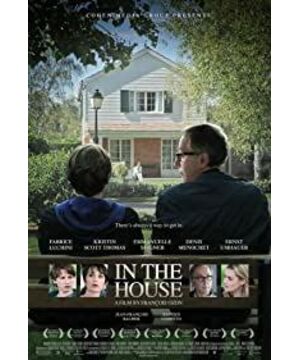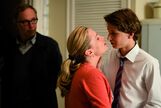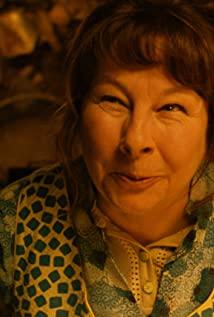The title of the translated film is "Into the House", which doesn't seem to be so appropriate. The Hong Kong version translates it into "Stolenly Love the Fenced Mother", is that okay.... The film is about the discovery of Gilman, a French teacher in middle school, in many disappointing weekly diaries. I picked up an article written by a student named Claude, and made him shine, thinking he had a talent for writing. Through the individual tutoring of Claude, Gilman's passion for writing has been rekindled. Through tutoring one after another, he has become completely fascinated by this novel story. On the one hand, he wants to participate in the creation, on the other hand, he restrains himself from influencing The direction of the story, with one small article after another and the "unfinished" at the end, the story deviated from the track more and more dangerously, beyond Gilman's expectations. In the end, Gilman lost his job and wife and became nothing because of the boy, but Claude returned to his life.
The story begins with tedious school meetings and disappointing weekly corrections. The Gilmans are like typical big and middle-aged couples, living a bland but difficult life. The relationship between husband and wife is safe and just avoiding problems. The Rafa family is an ordinary family that cannot live in an ordinary family. Is it really as harmonious as it seems on the surface? Claude, the protagonist of the story, is accustomed to sitting in the back row of the classroom, and likes to quietly watch what happens behind the windows of each house on a park bench, and use his imagination to make up stories that he understands. The observer, only the observer can be at ease and calm, as long as he has imagination, he can enrich his life.
At the climax of the story, Claude and Farah's mother kiss, and Farah hangs himself with a striped tie in his school uniform. Teacher Gilman can no longer distinguish reality from fiction, and neither can the viewers. This is like the multi-layered dream in the movie "Inception", the fiction and reality are intertwined, and the scenes in the play are not clear.
Claude has a voyeuristic desire, and can use observation and tricks to enter other people's homes. People at home always feel safe and independent, but they don't realize their loneliness. It is this loneliness that makes them easily Accept and trust the good intentions of others and open the door easily. Gilman was controlled by his own literary enthusiasm and desire to read stories, even crazy, Claude gave up writing, which of course he could not allow, so he was naturally controlled by Claude. Gilman's wife longs for recognition and a passionate life, but her life is always unsatisfactory, full of disappointments, and her husband is not sure about her. Although she is calm on the surface, it is undercurrent and ready to explode. Farah's role is very bland. The two Farahs have the same name. If you look closely, it seems that they are the same person. Impulsive, the same inferiority complex. Farah's mother, the hostess of the house, Claude's secret love object, Claude's desire for this house all comes from her, in Claude's writing, she is a beautiful self-made, speechless, unwilling and ignored woman. The focus of everything is on the two Farahs, and even his only hobby of decorating can't be completed because of the change in her husband's work.
At the end, Claude sits down with Gilman, who has nothing on a park bench, his face vicissitudes, and a whole new world opens up to him, facing the many windows of the apartment building. The door to imagination has opened, and the door to literature has opened. He seems to have regained the passion and inspiration he had when he wrote the book 20 years ago. He and Claude discussed the plot in his heart word by word. He smiled so brightly.
I have a few questions about this story.
1. Are father Farrah and mother fictional beings, and what we see is only Claude's imagination, how much is the real content of the story?
2. Why did Gilman's wife change so much after meeting Claude, just because the gallery was sold?
3. Chinese elements in the film, why?
4. From the beginning of the film, it is emphasized that the school requires students to wear uniform school uniforms in the new semester, and there are many close-ups of school uniforms, why?
I was impressed with "No, everything has to happen in this room".
Moreover, Claude has Electra and Oedipus complexes because of the lack of family parents.
The film uses literature and mathematics to represent the rational and perceptual worlds, respectively. "Mathematics has never let me down." The
peculiar angle and the peculiar story are impressive.
View more about In the House reviews









